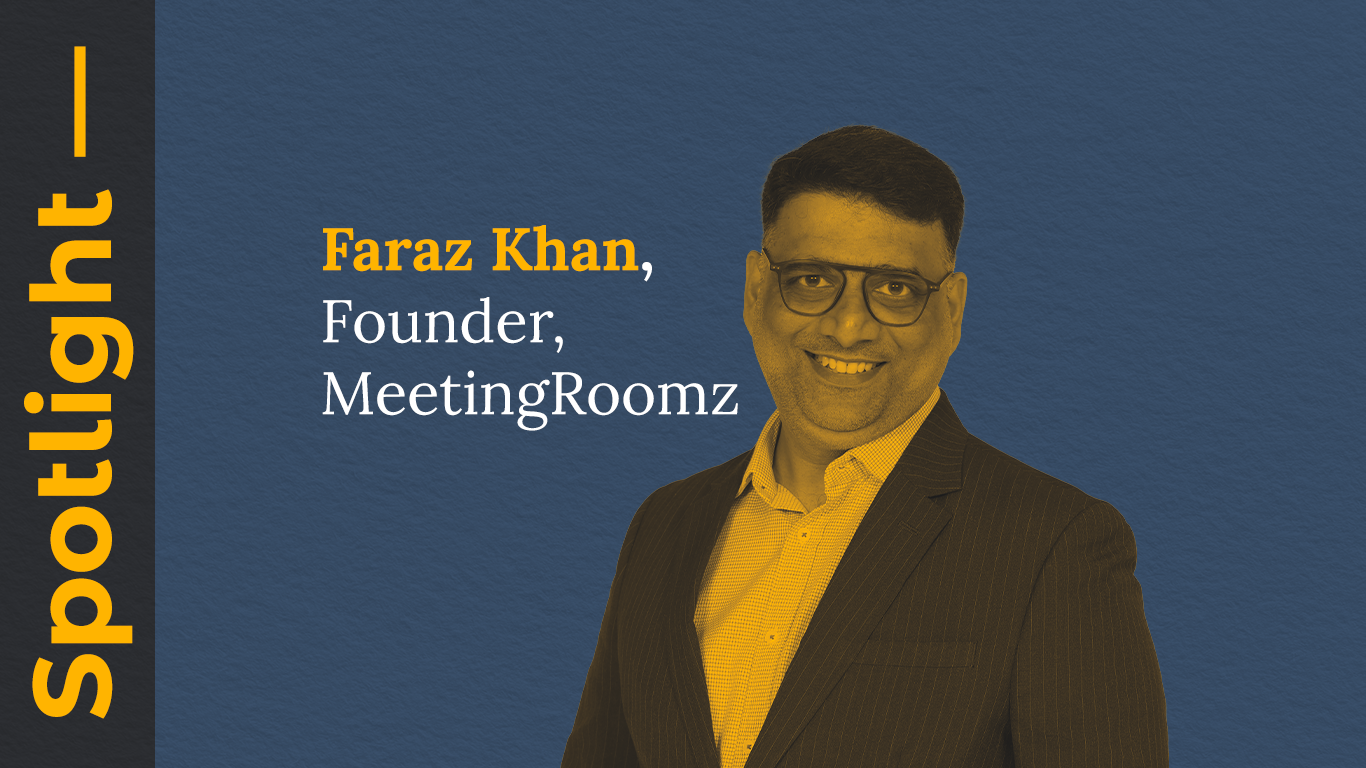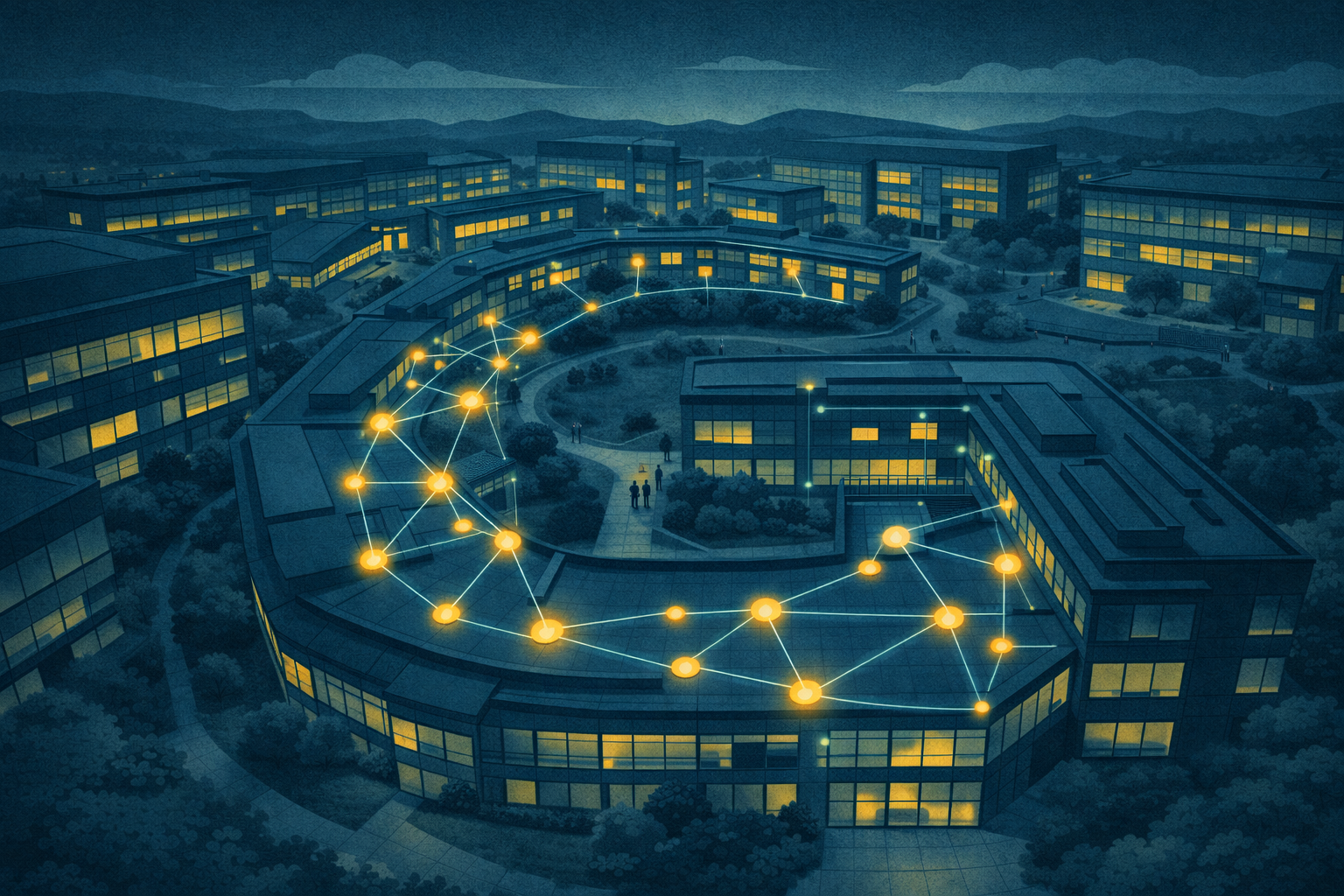In the past five years, flexible work has evolved from a perk to a defining characteristic of modern business life. Hybrid working models have reshaped office expectations, while AI and digital platforms continue to influence not just how we work, but where and when. Analysts now value the global coworking and flex office market at more than $20 billion, with double-digit growth projected for years to come. For Faraz Khan, founder of MeetingRoomz, these global shifts were both a catalyst and a call to action.
Khan’s story began long before the most recent wave of workplace change. Early in his career, he held roles with enterprise technology giants Dell and Acer, giving him a front-row seat to the forces redefining how businesses operate. “That foundation gave me a front-row seat to how rapidly the way we work was evolving,” he recalls. Over the years, however, he grew frustrated with one persistent problem — the disconnect between fast-moving business needs and the static, inflexible reality of traditional office leasing. “My goal has always been to simplify complexity in day to day business,” Khan says.
This frustration was brought into sharp focus during the Covid pandemic, as companies everywhere suddenly questioned why they were paying for underused, inflexible office space. The disruption made visible a longstanding gap: while businesses were becoming more distributed and agile, their workspace options had scarcely changed. Even in 2025, many organisations still grapple with legacy leases, underutilised real estate, and a lack of true flexibility. The market’s response has been swift, with providers from WeWork to IWG to Deskimo racing to offer more adaptive solutions. Yet for many, the process of finding and managing workspace remains fragmented and inefficient.
Khan saw an opportunity to create a platform that matched the modern workforce’s needs. MeetingRoomz, launched in London in 2024, set out to make workspace access as flexible and intuitive as ordering a taxi. Today, the platform connects users with underused meeting and coworking spaces in real time, utilising GPT and Google AI technology to optimise matching and resource use. “The original goal was simple: make booking a meeting room as easy as ordering a taxi. But as we grew, it became clear that the bigger opportunity was in enabling flexibility at every level, for freelancers, scaling teams, and venue operators alike,” Khan explains.
Since launch, MeetingRoomz has broadened its reach through strategic partnerships — most notably a 2025 alliance with Deskimo, which expanded the network into Asia-Pacific markets. Its membership with the UK’s Flexible Space Association underscores a commitment to best practice and sector standards. By harnessing AI and real-time data, MeetingRoomz positions itself at the leading edge of a rapidly evolving industry.
But for Khan, technology is only part of the story. He believes the true differentiator lies in leadership values and company culture. “Scaling while staying true to the mission. It’s tempting to chase every opportunity, but not every good idea is the right one,” he reflects. Shifting from hands-on founder to leader was, in his words, a turning point: “I’ve learned to say no more often, trust data over instinct when needed, and empower people around me to take ownership.” Culture, he insists, is not something that emerges by accident. “You have to design for it. We’ve embedded rituals, feedback loops, and transparency at every level. I also try to stay visible — whether it’s weekly updates, casual catch-ups, or just showing up when it counts.”
That intentional culture-building is increasingly vital in a sector where rapid change is the norm. Analysts expect the global market for AI-enabled workspace management to quadruple over the next decade, driven by demand for smart booking, real-time analytics, and seamless hybrid integration. Researchers speak of “blended work” — where human and digital systems combine to unlock new forms of productivity. In this landscape, MeetingRoomz’s intelligent matching and data insights offer a glimpse of what the future may hold.
Khan is not content to merely adapt to change — he sees it as an opportunity to build and reinvent. When asked what he wishes he’d known at the outset, he emphasises the importance of action and resilience. “Start sooner and trust yourself. You don’t need all the answers to take the first step — just the courage to begin. Most people are figuring it out as they go. Be prepared to fail, and fail again — that’s part of the process. What matters is that you keep moving, stay true to your vision, and never give up.”
As MeetingRoomz looks ahead, these hard-won lessons serve as both compass and engine. Change, after all, is not just inevitable but welcome — especially with MeetingRoomz aiming to lead the charge into a new era of flexible, AI-enabled work. In a market defined by uncertainty, Khan’s approach stands out for its blend of technology, leadership, and grounded optimism.
The workday is changing, and so too are the tools and platforms that support it. If the future belongs to those who can adapt and empower others to do the same, MeetingRoomz and its founder are well placed to meet the challenge — wherever, and however, the next phase of work may unfold.




